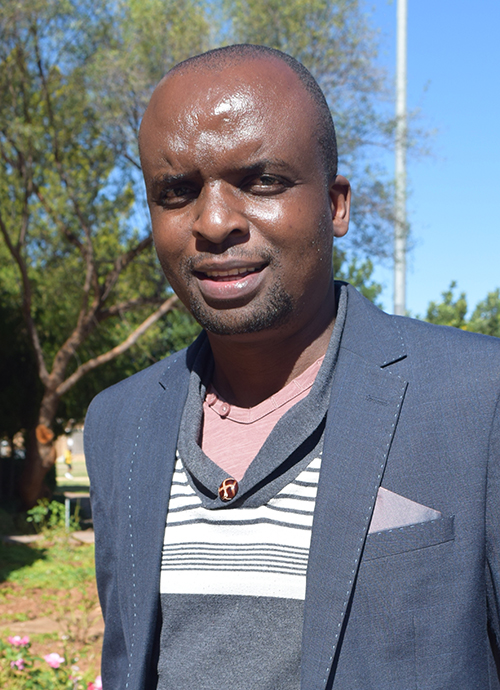North-West University (NWU) LLD candidate Elfas Torrerai has done a statutory analysis of the use and regulation of mobile money to promote financial inclusion in developing countries.
The title of his study is “A comparative statutory analysis of the use and regulation of mobile money to promote financial inclusion for the poor in Zimbabwe”.
It involved a comparative analysis of the regulation and use of mobile money to promote financial inclusion in Kenya, South Africa, Zimbabwe and the United Kingdom. It revealed that Zimbabwe lags behind in adopting and regulating financial technology products and that the current mobile money regulatory framework is inadequate.
Elfas has proposed a viable regulatory technology (regtech) model that policymakers and the legislature can use to enhance the regulation of mobile money to promote financial inclusion for the poor in Zimbabwe.
No bank accounts needed
He defined mobile money as financial services delivered through cell phones and related electronic devices, without the need for bank accounts.
According to Elfas, mobile money combines finance, technology and telecommunication aspects and is an innovative financial product contributing to financial inclusion in developing countries such as Zimbabwe.
“This thesis reveals that millions of poor persons who could not access formal financial services owing to various reasons such as failure to meet banks’ documentary requirements use mobile money in Zimbabwe and other countries.”
He says mobile money has been invaluable since the outbreak of the coronavirus pandemic. Public health experts encouraged people across the world to use contactless payment systems to combat the spread of the virus. “Mobile money allows people to transact using their mobile phones and this provides a measure of safety and convenience to users, especially the poor,” says Elfas.
“However, the use of mobile money requires robust regulation to combat financial crimes such as fraud, money laundering and terrorist financing,” he says.
Current regulation lacks consistency
Although mobile money has been in Zimbabwe since 2011, the legislature has not enacted a statute that expressly regulates it.
Elfas points out that financial regulators and law enforcement authorities are using incoherent provisions from various statutes to regulate mobile money, resulting in various flaws in the mobile money regulatory framework.
“This thesis reveals that the Zimbabwean National Payment Systems Act, as amended, does not define mobile money. Furthermore, the Act does not make specific provision for mobile money. The Banking Act, as amended, uses the terms ‘mobile money’ and ‘mobile banking’ interchangeably. However, this thesis reveals that the two terms are distinct and connote different meanings, hence they cannot be synonyms.”
Zimbabwe’s Banking Regulations 2020 mention mobile money but do not provide a definition and/or provisions that directly and robustly regulate mobile money in Zimbabwe.
Elfas’s study, with its emphasis on regulation, could go a long way towards enabling financial services regulators to promote the financial inclusion of the poor in Zimbabwe and other developing countries.
About the researcher
Elfas Torrerai registered for his LLD studies in May 2020 and has managed to complete his research in exactly two years. This was possible due to the expert guidance and mentorship of his supervisor, Prof Howard Chitimira, and co-supervisor, Dr Friedrich Hamadziripi.
He will be graduating with his LLD during the NWU Winter graduation ceremony in June.

Elfas Torrerai.
